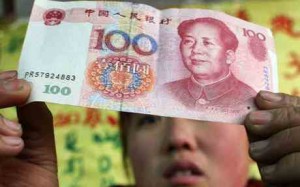More on the China middle-income trap
 Monday, February 25, 2013 at 3:28PM
Monday, February 25, 2013 at 3:28PM 
Great piece in Forbes that my wife found.
Part that caught my eye references a second analysis:
In their final installment on the Chinese economy, titled “Beyond the Miracle”,Barclays Capital analysts in Hong Kong led by Yiping Huang wrote that China will avoid the middle-income trap as a whole. However, they did not underestimate the risks facing China’s economy in the coming years. It’s one thing to be middle income. It’s another thing to move out of that middle income and into the coveted high income category of Western Europe, the United Statesa and Japan.
The experience of countries that failed to make the jump to high-income status suggest that their inability to innovate and upgrade can be attributed to three broad factors: (1) macroeconomic, political and social instability; (2) persistent inefficient allocation of resources; and (3) insufficient support to physical infrastructure and human capital development.
The persistently inefficient allocation of resources is the government having too much of a role in investment and picking winners and losers (mostly shielding the latter while the elite corruptly hoards the benefits of the former). I realize that contradicts the "wisdom of the state" notion behind the Beijing Consensus, but history says the state displays little smarts, and there is a ton of evidence of badly spent public investment in China.
The instability arises from a lot of things: enviro damage, repression of political rights and free speech, corruption of officials, and the S-curve slowdown in general.
China does decently-to-well on the sufficient support to infrastructure development - both hard and soft. But that can backfire too if the growth fails to materialize or the slowdown is profound enough.
Answer for all these things is simple: turn the people loose on creativity and freedom of spending choices. Problem is, of course, the single-party dictatorship finds all that uncomfortable, so they shortchange it whenever and wherever they can. Why? If people get to decide too much of their economic reality on their own, their ambition naturally turns to politics over time. People simply stop being willing to be treated like children on the latter score; it offends their intelligence and obvious sense of accomplishment - especially when they know full well that talented Chinese abroad succeed and get to politically participate in democracies.
And that's what eventually stops the show, forcing political change.










Reader Comments (4)
Slightly off-topic, but have you seen this article yet?
http://www.forbes.com/sites/gordonchang/2013/02/24/is-foxconn-fleeing-china-sure-looks-like-it/
Interesting that China's territorial ambitions might cause it to lose some of the business activity that gave it enough money to pursue those ambitions in the first place.
An important tidbit: according to Forbes, 3 out of 10 Chinese millionaires are women. I doubt South Korea has those numbers. India definitely does not.
Any nation that can accomplish that will have no problems with creativity in the next generation. China will surprise us.
http://www.forbes.com/sites/kenrapoza/2011/05/14/chinese-millionaires-younger-than-us-millionaires-report-says/
@Frank Kehl ,
Check who wrote that piece and you will know how credible that piece is. Or are you too eager to see China fall to believe his crap.
China's territorial ambition? You mean a few rocks in East China Sea and some reefs in South China Sea and the waters in their vicinity? Seriously, that can't be called an ambition for a country of China's status.
Returned from the U.S. to learn what is new in reducing pollution from coal-fired power stations. It's going to be interesting to see this year is attitudes in Chinese power plants towards doing things better will be different. If not according could be bad for the CCP. According to Minxin Pei this is one of the 5 top survival issues for the CCP. As always Xinxin Pei has some of the best insights on Chinese politics:
http://thediplomat.com/2013/02/13/5-ways-china-could-become-a-democracy/